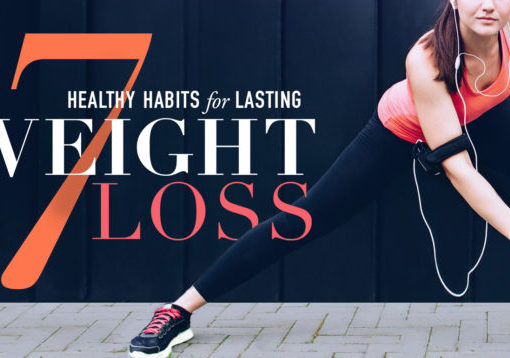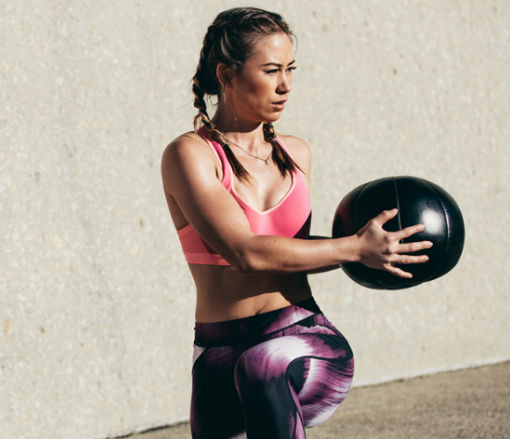By Denis Faye – from the Team Beachbody Newsletter
About a year ago, I decided to take back my night. It had been three years since my divorce, a hellish experience that had completely robbed me of my ability to sleep. 3 hours was an average night. 5 hours was a miracle.
Much like a good yoga workout, time heals all wounds, so eventually my pity party ended but the sleep thing didn’t correct itself, so while life was okay, it was by no means awesome. My performance suffered athletically, mentally, and (most horrifically) in terms of that other thing people do in bed.
It’s by no means surprising. From an athletic perspective, a study from Stanford University shows that athletes who slept 10 hours a night showed a marked increase in performance.1 Another study out from the University of California, Berkeley, shows that healthy sleep habits help to “reboot” your brain, making room for new knowledge.2 As for the sex thing, just take my word for it.
The first step I took in addressing my sleep issue was to take all the tired, old advice you’ve read a thousand times. Some of it actually worked quite well.
- I instituted a regular bedtime of 10 PM to give my body’s natural rhythms a cue.
 I stopped drinking coffee after noon, giving myself substantially more time than the 6 hours caffeine typically takes to get through your system.
I stopped drinking coffee after noon, giving myself substantially more time than the 6 hours caffeine typically takes to get through your system.- I took natural sleep aids. Melatonin didn’t do squat for me. Some experts theorize this is because supplementing this hormone only works on people who are naturally low on it. Valerian root, however, worked like a charm despite the stink. Finding the right natural sleep aid might take you a few tries, but don’t give up until you’ve tried all the different (safe) sleep supplements out there. One of them is bound to knock you on your keister.
While these tricks certainly helped, my sleep was still less than perfect. I wanted to try the other tips out there, but they just didn’t make sense to me. For example, “Turn your bedroom into calming place.” The walls of my room are covered in neon rock show posters and garish Hindu tapestries. Awesome? Yes. Calming? Not so much but I’m not about to take them down. But one day, on a whim, I strung some blue holiday lights across my window. They bathed my sleep space in a soothing, cool light, despite the wall hangings. That’s when it hit me.
Generic advice is just that: generic. That doesn’t mean it’s bad; it just means you shouldn’t be afraid to adapt it for your own needs. It’s a question of trying variations on the theme until something clicks. From there, I started to have some serious fun with my sleep project. Here are a few more tweaks that worked:
 What they told me to do: “Make your bedroom an electronics-free zone.”
What they told me to do: “Make your bedroom an electronics-free zone.”
The basic notion is that all those magnetic waves and glowing screens mess with your circadian rhythms and distract you from sleeping.
What I did: Like most Americans, not only do my iThings entertain and delight me during the daylight hours, but I use them as an alarm clock, a white noise machine, and a place to jot down things that occur to me in the middle of night all crucial to a good night’s sleep. I wasn’t willing to give all that up.
However, I was willing to pare down. I use both my iPad ® and my iPhone ® for all of the above. However, I also use my iPhone for receiving phone calls and texts. Even if I disable the alerts for these features, it’s just so tempting to check texts manually at 2 AM because, you know, Commissioner Gordon might need me to go fight the Riddler or something.
My simple solution was to sequester my iPhone to the kitchen each night and keep the iPad in my bedroom for more relaxing tasks. Bye-bye late night texting. Batman will need to save Gotham without me.
What you can do: Look around your bedroom. What do you really need in there? Even if you don’t believe in the whole magnetic waves thing, there are probably a bunch of buzzing, blinking lights you could do without. Ditch some, hide others in drawers, and put blankets over the rest.
What they told me to do: “Work out at night.”
Why? Because the post-exercise cool-down process helps make you sleepy.
What I did: If I work out before bed, I’m amped. My brain’s on an adrenaline groove and I’m ready to take over the planet. What I need is something to wind down. Enter yoga.
Yoga has a host of benefits, but it helps me around bedtime on two fronts. First, it acts as a mellow series of stretches that relax my muscles for slumber. Second, matching your breath to your movements ujjayi breathing, they call it takes focus. That, in turn, takes my mind off the baggage I accumulate every day. When I’ve mentally distanced myself from that pending 10,000-word deadline, it’s easier to hit the sack.
What you can do: Start noting how you feel after your various workouts. What pumps you up? What mellows you out? Maybe even track this in a journal. When you see relaxation patterns, start doing those workouts at night.
 What they told me to do: “If you’re not asleep in ten minutes, get up.”
What they told me to do: “If you’re not asleep in ten minutes, get up.”
This one comes from the idea that you’re probably not ready to sleep and lying there will only stress you out.
What I did: I have a Tempur-Pedic ® mattress and a down comforter. They’re really comfortable, so if insomnia hits me on a cold winter’s night, the last thing I want to do is press my feet on the cold, hardwood floor and go mosey. Instead of changing locations, I changed mind-sets. When I can’t sleep, I resign myself to the fact. I say, “I can’t sleep. Bummer. Oh well, I’ll just lie here and be comfortable.” For some reason, relieving myself of the burden of slumber works like a charm and I typically drift off in ten minutes.
What you can do: Some of us struggle with sleep. It stinks, but sometimes we just need to embrace it. A long-term sleeping issue can cause health issues, but if you have one lousy night of sleep, it’s not that big of a deal. So when you have a bad case of “the awakes,” think of it as an isolated case. Shrug your shoulders and accept that, worst case, you might be a little sleepy tomorrow.
Resources:
- The Effects of Sleep Extension on the Athletic Performance of Collegiate Basketball Players. Cheri D. Mah, Kenneth E. Mah, Eric J. Kezirian, William C. Dement Sleep. 2011 July 1; 34(7): 943-950.
- Walker MP, Stickgold R. Overnight alchemy: sleep-dependent memory evolution. Nature Reviews Neuroscience 2010; 11: 218.
Related Articles
“Ask the Expert: When Should I Stop Eating at Night?”
“10 Tips to Get the Best Sleep Ever”
“11 Ways You Can Use Your Phone to Get Fit”

 I stopped drinking coffee after noon, giving myself substantially more time than the 6 hours caffeine typically takes to get through your system.
I stopped drinking coffee after noon, giving myself substantially more time than the 6 hours caffeine typically takes to get through your system.


